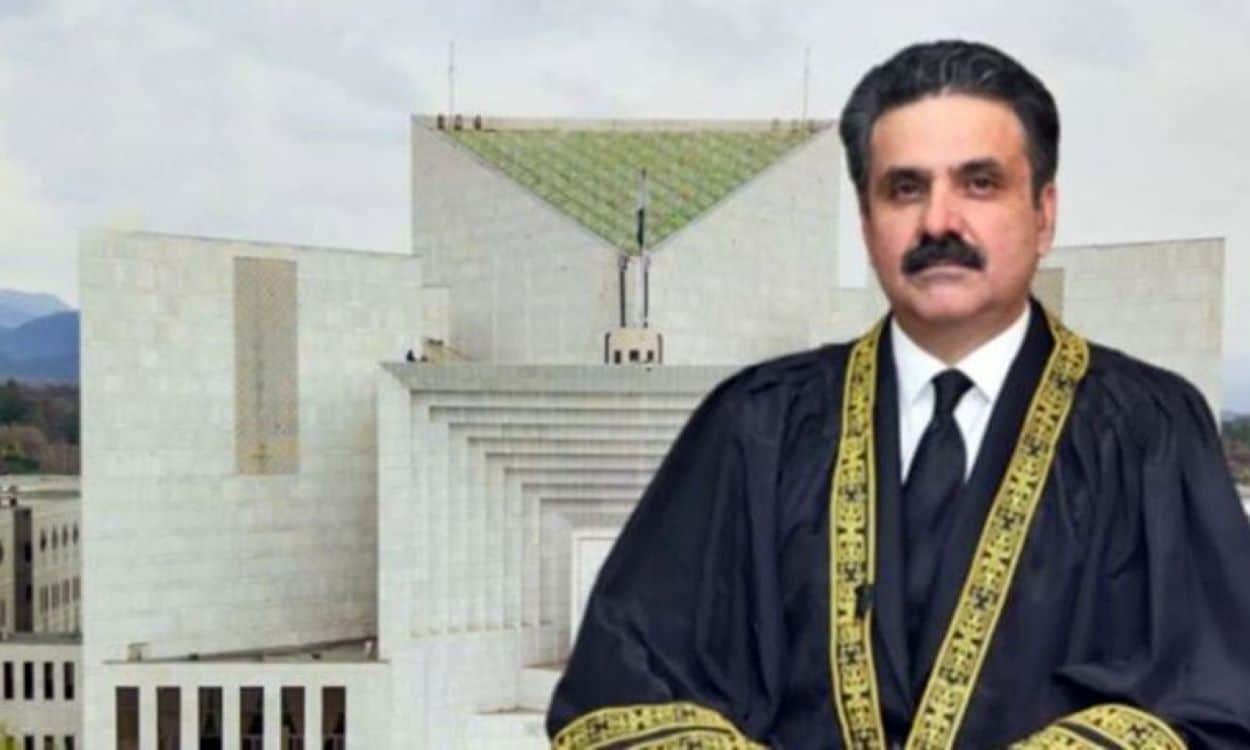The conflict among Pakistan’s Supreme Court judges has escalated, with four justices who opposed the promotion of high court judges to the apex court removed from key administrative committees.
Chief Justice of Pakistan (CJP) Yahya Afridi reconstituted several committees, replacing senior justices with junior ones. Judges excluded from important roles include Justice Syed Mansoor Ali Shah, Justice Munib Akhtar, Justice Ayesha Malik, Justice Athar Minallah, and Justice Aqeel Ahmad Abbasi.
Reports reveal that Chief Justice Yahya Afridi has removed Justice Mansoor Ali Shah from his advisory role at the Federal Judicial Academy (FJA), a position he had occupied for the past year. Justice Munib Akhtar and Justice Ayesha Malik no longer participate in the Law Clerkship Programme Committee, which Justice Muhammad Ali Mazhar now leads, joined by Justice Miangul Hassan Aurangzeb. Additionally, authorities have excluded Justice Aqeel Ahmad Abbasi from the SC Building Committee and Justice Athar Minallah from the Supreme Court’s Archive and Museum Committee. Furthermore, the new structure has given Justice Irfan Saadat Khan no committee assignments.
There was an expectation that the internal conflict among Supreme Court judges might settle under CJP Afridi’s leadership, but tensions remain high. Legal experts believe the situation might have unfolded differently had CJP Afridi constituted a full court to hear petitions regarding the 26th Constitutional Amendment.
Read: Supreme Court of Pakistan’s Seniority List After New Judges Appointment
Justice Mansoor Ali Shah and Justice Munib Akhtar, part of the majority in a relevant committee, had ordered a full court to hear the petitions in early November. However, instead of listing the case, CJP Afridi convened a Judicial Commission of Pakistan (JCP) meeting to select judges for a constitutional bench, delaying the hearing of the petitions. The government succeeded in appointing its preferred judges, prompting further concerns about the fairness of the process.
In his first 100 days in office, CJP Afridi appointed 36 judges to the high courts and elevated seven to the Supreme Court. However, his acknowledgement of the government’s influence in the appointment process raised serious concerns about the integrity of some newly appointed judges.
Justice Shah urged the Judicial Commission of Pakistan (JCP) to establish rules for nominating judges to the constitutional bench, but they did not entertain his suggestion. Additionally, when a three-member bench under Justice Shah’s leadership questioned the jurisdiction of a regular bench in a tax case, a committee led by Chief Justice Yahya Afridi removed the matter from his bench.
Tensions escalated when the constitutional bench, also led by Justice Shah, voiced their frustration with the regular bench’s ruling that four senior Supreme Court judges could face contempt proceedings, deepening the ongoing standoff.
Chief Justice Afridi called a JCP meeting to discuss eight new Supreme Court appointments. Four Supreme Court judges challenged the timing of the meeting, demanding that the JCP first resolve the pending application for a full court hearing on the 26th Amendment. Chief Justice Afridi defended the new appointments, criticizing “corporate judges” like Justice Shah and Justice Munib Akhtar for not fulfilling their responsibilities.
On February 10, Justice Shah and Justice Munib Akhtar boycotted the JCP meeting, leading to their removal from key administrative committees. This ongoing conflict has sparked debate over whether the committee had the authority to override judicial orders, with some lawyers viewing the standoff as a clash between beneficiaries and aggrieved judges of the 26th Amendment.






